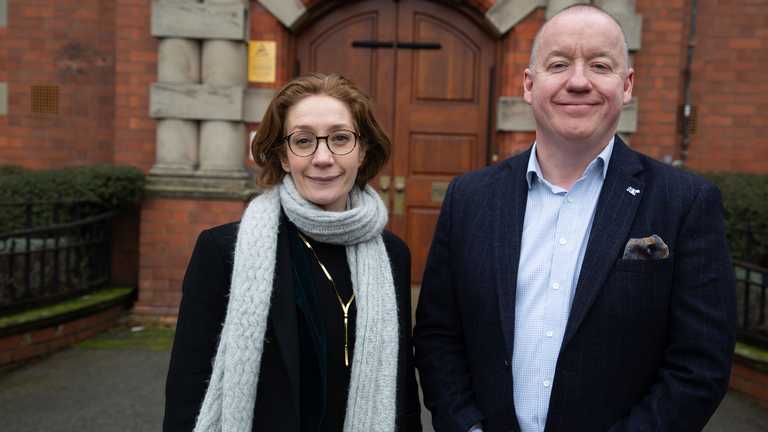

Loading search...
Loading search...
Loading site search...
Loading site search...
Loading site search...
Loading...
Loading site search...
Loading site search...
Posted 26 July 2013
The recognition of these imperatives is nothing new here at Harper Adams University, and the importance and diversity of farming is something our brightest students have recognised for years.

A monthly comment from a member of staff at Harper Adams University
Charles Cowap, Principal Lecturer in Land Management
David Fursdon’s Future of Farming Report at last gives us an authoritative report which goes further than imploring landowners to make cut price tenancies available to unproven new entrants to the farming industry.
It paints a very positive future for agriculture and stresses again the importance of ensuring the industry is able to attract and retain the right talent.
This theme was picked up by the BBC, under the banner 'Farming needs image change to boost recruitment’.
Quoting from the report, it said: "There is a tension between the sometimes pastoral picture presented and the reality of an increasingly high-tech industry that requires IT-savvy, focused entrepreneurs, managers and staff to run it and work in it.
"The traditional view of agricultural work only being low-skilled and involving hard physical [work] is no longer apt... A key component in delivering the right image is for farming to be seen as more akin to a profession practising a huge range of skilled tasks."
And now the Government has announced a further £160 million for farming technology in the UK, with the launch of its Agricultural Technologies Strategy. This is about as far from the traditional bucolic image of farming as can be imagined.
The emphasis is on breakthroughs in nutrition, informatics, satellite imaging, remote sensing, meteorology and precision farming.
The new strategy recognises that agriculture is one of the world’s fastest growing sectors. It includes a £160 million government investment in developing cutting edge technologies, and taking innovative products such as cancer-fighting broccoli from the field to the shopping aisle.
The recognition of these imperatives is nothing new here at Harper Adams University, and the importance and diversity of farming is something our brightest students have recognised for years.
Major investments in a National Centre for Precision Farming, modern dairy, commercial anaerobic digestion facilities, and the Centre for Fresh Produce Research all demonstrate Harper Adams’ already very active involvement and commitment.
Our students and graduates are already gaining directly. Recent figures for our agriculture graduates show that they come with an average of 330 + UCAS points – that’s an A and two Bs at A-Level if you chuck in an OA point or two.
While nearly 85 per cent of them say they come from a farm, many fewer go back home to farm – just over a third. But, as many again are taking up posts on other farms, many as managers.
Others are forging highly successful careers in the food supply chain, in research, and as consultants and advisers. Add to the agriculturists the graduates from other degrees, land management for example where most graduates will work alongside the agricultural industry as they qualify as chartered surveyors and agricultural valuers.
This all underlines the relevance of Fursdon’s conclusions. There are great careers in farming and agriculture.
It’s relatively easy to be self- employed in the rural economy, by either setting up on your own or working your way up to a partnership in a professional consultancy.
The real difficulty is to become self-employed as a farmer, because that takes a lot of capital. But with all the other opportunities available, why should farming be any different from any other capital intensive industry in this regard?
Fursdon and his team have done the industry a great favour by recognising the commercial and economic reality of this.










We use cookies to ensure that we give you the best experience on our website. If you continue without changing your settings, we'll assume that you are happy to receive all cookies on the website. However, you can change your cookie settings at any time.